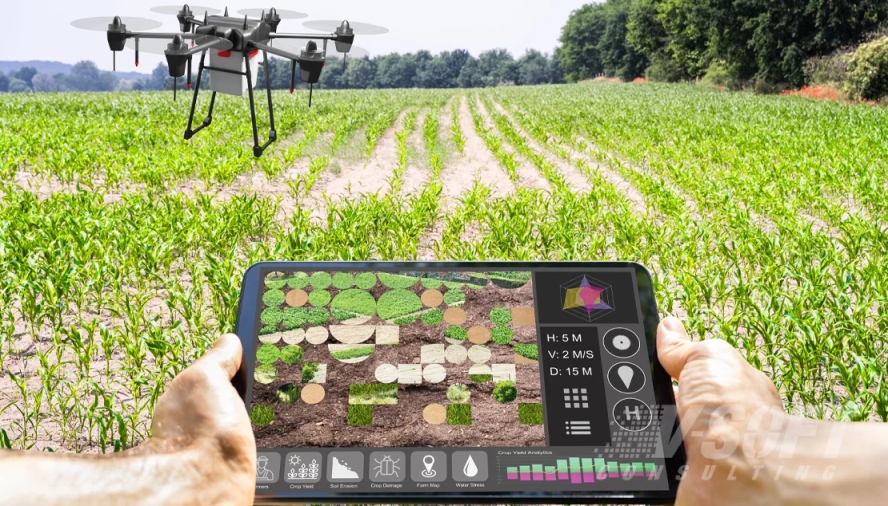Copyright TechStartups.com

Top 10 Tech News Stories Today — Your Quick Briefing on the Latest Technology News, Startup Trends, and Innovation Shaping the Future It’s Wednesday, November 5, 2025, and we’re back with the top tech and startup headlines making waves today. From Wall Street’s AI bubble jitters to breakthroughs in antibiotic discovery, today’s stories reveal both the promise and pressure points defining the next era of innovation. Whether you’re a founder, investor, or tech enthusiast, this daily digest keeps you informed and ahead of the curve — without scrolling endlessly through feeds. Latest Tech News Today Here’s your roundup of the latest tech news making waves today. 1. Wall Street Ends Lower as Bank CEOs Warn of a Market Pullback, Fueling Tech Bubble Jitters U.S. stocks tumbled on Tuesday, with the S&P 500 and Nasdaq posting their biggest one-day declines since early October. The Dow fell 0.53%, while the Nasdaq plunged more than 2% as CEOs from JPMorgan Chase, Goldman Sachs, and Morgan Stanley warned of possible corrections due to overstretched valuations in AI-driven stocks. Tech shares bore the brunt, with the Philadelphia Semiconductor Index dropping 4%, and major players like Palantir (-8%), Uber (-5.1%), and Shopify also sliding. The selloff signals mounting investor anxiety over whether the AI rally has run too far, too fast. These declines highlight renewed fears of a tech bubble and broader market correction as investors digest mixed earnings and brace for limited government data amid the shutdown. Source: Reuters 2. UK to Add Mortgages and AI Literacy to England’s School Curriculum The UK government is overhauling England’s national curriculum for the first time in a decade, introducing financial literacy lessons covering mortgages and budgeting, alongside AI and data science education. The reforms also aim to improve diversity representation, climate content, and oracy skills while scrapping the outdated English Baccalaureate (EBacc). Students will learn to identify fake news and AI-generated content as part of new digital literacy modules. The shift reflects growing recognition that future generations need both financial and technological fluency to thrive in AI-driven economies. Critics, however, warn that schools will need substantial funding and training to make these reforms work in practice. Source: BBC 3. MIT Uses AI to Design New Antibiotics That Can Fight Drug-Resistant Superbugs In a major medical breakthrough, MIT researchers used generative AI to design millions of potential antibiotic compounds, identifying two promising candidates, NG1 and DN1, effective against drug-resistant strains of gonorrhea and MRSA. Published in Cell, the research shows how AI can explore vast chemical spaces faster than traditional discovery methods, potentially reviving an antibiotic pipeline that’s been stagnant since the 1980s. While clinical use is still years away, this innovation could mark the beginning of a new era in AI-driven drug discovery — a critical step in combating the global antibiotic resistance crisis. Source: Sky News 4. From Tractors to ChatGPT: Lessons from Agriculture on How AI Will Transform Work A Globe and Mail analysis draws striking parallels between the agricultural revolution and today’s AI transformation. Just as mechanization cut Canada’s agricultural workforce from 37% to 1% over the past century, AI could soon automate many white-collar roles — from coders to analysts — more rapidly than any prior industrial shift. The report argues that while technology once displaced physical labor, AI is now set to reshape cognitive work itself. The challenge ahead: ensuring new types of employment emerge fast enough to absorb displaced workers. Like tractors once did for farming, AI could multiply productivity — but also widen economic divides if adaptation lags. Source: The Globe and Mail 5. Stability AI’s Legal Win Over Getty Leaves AI Copyright Law in Limbo Stability AI scored a partial legal victory against Getty Images in the UK’s High Court. Still, the ruling left a critical question unanswered: can AI firms legally train models on copyrighted material without permission? The judge dismissed key copyright claims but upheld Getty’s trademark complaint over reproduced watermarks. With Getty refiling its broader case in U.S. courts, the issue remains unresolved. The outcome underscores how global copyright law still struggles to keep pace with AI’s training methods, leaving creators and tech companies in legal uncertainty. Source: The Verge 6. Investors Warn of “Tunnel Vision” on AI Stocks A CNBC analysis cautions investors against overconcentration in AI-related equities as even top performers like AMD, Palantir, and Nvidia saw sharp declines. CEOs across Wall Street echoed warnings that the market’s AI obsession could trigger a correction if revenues fail to match sky-high valuations. Adding to market unease, IBM confirmed small-scale layoffs, and Norway’s sovereign fund opposed Elon Musk’s trillion-dollar Tesla pay package, citing governance concerns. Meanwhile, Saudi Aramco’s plan to invest in AI startup Humain shows how energy giants are muscling into the AI data center race, hinting that global competition for compute power is just beginning. Source: CNBC 7. Jersey Launches AI Council to Drive Islandwide Adoption Jersey has launched a new AI Council to coordinate AI initiatives across the island’s government, finance, and regulatory bodies. Led by Digital Jersey, the council will bridge gaps between public and private efforts, fostering knowledge-sharing and strategy alignment. CEO Tony Moretta said Jersey is at a “pivotal moment” in its AI journey, emphasizing collaboration as the key to amplifying innovation on the island. The initiative could serve as a model for small jurisdictions aiming to build cohesive, nation-scale AI ecosystems. Source: BBC 8. 7 Remote Jobs Most Likely to Survive the Next Tech Layoffs As Big Tech trims headcount — with Amazon and Microsoft collectively cutting nearly 30,000 roles this year — new data highlights which remote positions are safest from layoffs. According to Forbes, roles like cybersecurity analysts, healthcare IT specialists, financial analysts, and software engineers in core infrastructure remain highly resilient. These roles address mission-critical needs such as security, compliance, and cost efficiency — areas that strengthen during downturns. The report suggests workers can safeguard their jobs by focusing on revenue impact, risk mitigation, and cross-functional expertise as automation reshapes corporate workforces. Source: Forbes 9. Xpeng Unveils Robotaxis and Humanoid Robots Powered by Its Own AI Chips Chinese EV maker Xpeng announced plans to launch robotaxis and humanoid robots using its in-house “Turing” AI chips, which deliver industry-leading 3,000 TOPS computing power. Testing begins next year in Guangzhou, signaling a leap forward in autonomous mobility. The company also revealed its Iron 2 humanoid robot, featuring three Turing chips and solid-state batteries, with mass production expected in 2026. CEO He Xiaopeng predicts that humanoid robot sales could one day surpass car sales — underscoring how Chinese automakers are evolving into full-scale AI robotics companies. Source: CNBC 10. Fairphone Expands to the U.S. with Sustainable Headphones Fairphone, known for its modular, repairable smartphones, is entering the U.S. market — starting not with phones, but with its Fairbuds XL wireless headphones. The eco-friendly over-ear model, launching on Amazon this month, serves as a test for U.S. demand before bringing the Fairphone 6 stateside. The move signals rising interest in sustainable consumer electronics, as more buyers prioritize repairability and longevity over frequent upgrades. Fairphone’s cautious entry could pressure other brands to rethink their throwaway tech culture in favor of greener, longer-lasting designs. Source: The Verge Closing Note From Wall Street’s tech selloff to AI breakthroughs in medicine, today’s stories paint a picture of an industry recalibrating — one foot on the gas of innovation, the other on the brake of reality. As AI hype meets harder economic truths, the winners will be those building long-term value — not just valuations. Until tomorrow, stay sharp.



